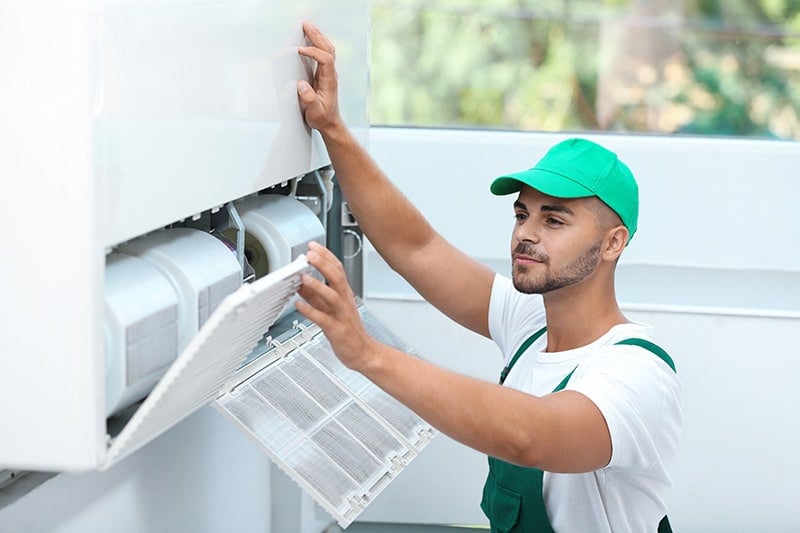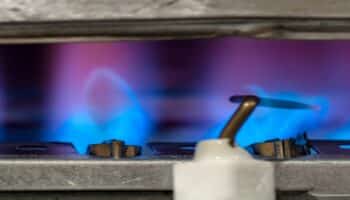Stuck trying to figure out why your furnace is causing your energy bills to increase?
That sucks! I understand how frustrating it can be to see your energy bills go up every month, especially when you’re not sure why your furnace is causing the problem.
Don’t worry, though. I’m here to help.
If your furnace is heating up your energy bills, you’ll need to replace the air filter, check the thermostat, and seal any air leaks in the ducts. It’s also important to check your home’s insulation and consider the age and size of your furnace.
Read on to lower your energy bills!
Reducing Your Furnace’s Energy Costs: 5 Tips
Utility expenses have increased significantly in recent years, and running a furnace isn’t exactly cheap. But don’t worry! In this section, you’ll find 5 simple tips to help you keep your energy bills in check.
Are you ready? Let’s get started!
#1 Replace the Air Filter
In my experience, a clogged furnace filter can contribute to increased energy bills.
The filter is responsible for capturing dust, dander, debris, and other small particles to prevent them from settling in the internal components of your furnace and being distributed throughout your home.
However, if it’s been a while since you last replaced your air filter, airflow will be restricted. As a result, your furnace will need to run longer and work harder to reach and maintain the desired temperature, leading to higher energy bills.
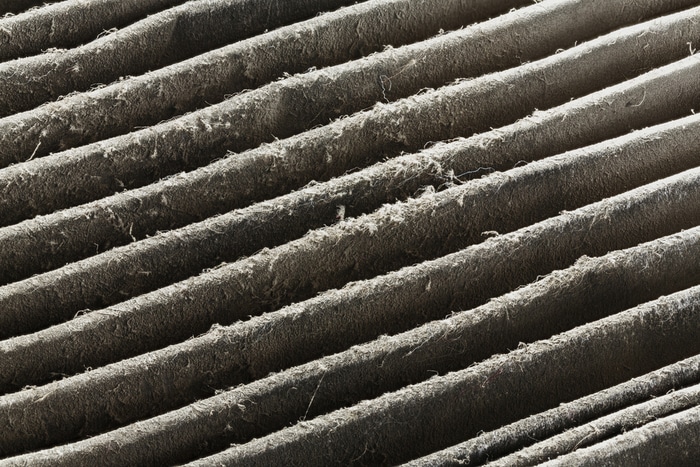
Follow these simple instructions to replace your furnace’s air filter:
- Turn off your furnace and locate the filter. It’s typically located in front of the fan or inside a duct opening. However, the exact location of the filter will vary depending on your furnace’s model, so please refer to the manufacturer’s manual for detailed instructions on how to access it.
- Slide the furnace filter out of its housing.
- If you have a reusable filter, clean it using a vacuum or soft brush. You can also rinse it with water and let it air dry.
- If your filter hasn’t been replaced within the last couple of months or is very dirty or damaged, you’ll need to get a replacement.
- Install the filter into its slot and reassemble any components you previously removed.
#2 Check the Thermostat
I always check the thermostat when my energy bills go up.
You see, setting your thermostat to a very high temperature will cause your furnace to work harder to reach the desired setting, leading to increased energy bills. So, please try adjusting the thermostat to a moderate temperature.
It’s also important to consider the thermostat’s location. If it’s near drafts, windows, or heat sources, it will fail to measure the room temperature. As a result, your thermostat will probably run for longer. To lower your energy costs, ensure your thermostat is located in a central area away from drafts or heat sources.
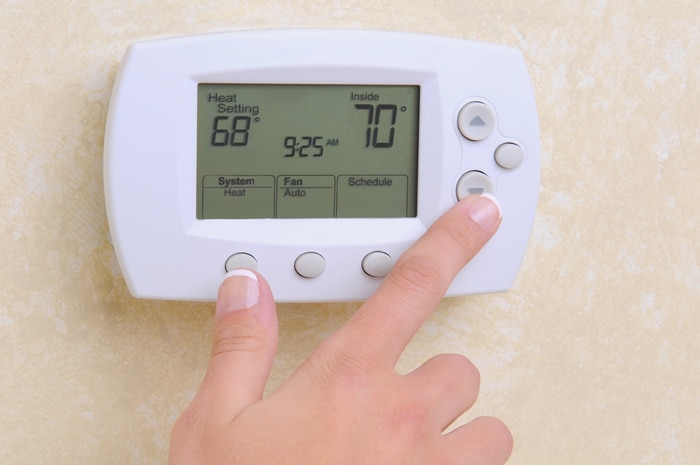
If you’ve tried the tips mentioned above, but your furnace is still increasing your energy bills, there’s a very good chance that the thermostat is not working. In such cases, you’ll need to replace it. Here’s how to:
- Turn off the power at the circuit breaker to ensure your safety. Then remove the front cover from the thermostat.
- Take a picture of the wiring connections for future reference. Then, carefully disconnect the wires from the thermostat.
- Remove the mounting plate from the wall.
- Install the new mounting plate.
- Connect the wires to the new thermostat, referring to the picture you previously took.
- Place the front cover in place and turn on the circuit breaker.
Once you’ve replaced the thermostat, please test it by adjusting the temperature.
#3 Seal Air Leaks
From what I’ve seen, leaks in your ductwork can also lead to higher energy bills.
Your furnace’s ductwork is responsible for circulating warm air throughout your home. Unfortunately, the duct materials can become loose or damaged over time, leading to air leaks.
When the heated air escapes from the ducts before it can reach the rooms, your furnace has to run longer to maintain the desired temperature, resulting in increased energy consumption.
The good news is that regularly inspecting the ductwork can help you prevent high energy bills. Simply turn off your furnace and use a flashlight to examine the ducts. If you spot any leaky joints, seal them with mastic sealant or foil tape.
While you’re at it, please use a long, flexible brush to clean out the ducts. Although the filter traps most particles, sometimes dust and debris can find their way into the ducts, restricting airflow.
Please keep in mind that if the ducts are severely damaged, or you notice any signs of mold, it’s best to call an HVAC technician immediately. They have the expertise and tools needed to diagnose and address the issue safely.
#4 Check Your Home’s Insulation
If your furnace is causing your energy bills to go up, I recommend checking your home’s insulation.
Poor insulation can allow heat to escape and cause your furnace to work harder to keep your home warm during winter. To reduce your furnace’s energy consumption, it’s essential to check the insulation in your home.
The easiest way to check the insulation is by examining the attic. According to EnergyStar, if the insulation is at or below the floor joists, you’ll need to add more.
You can also check your home’s insulation by turning off the circuit that powers an outlet. Then, use a screwdriver to remove the cover plate and look into the gaps with a flashlight.
As mentioned above, if your attic or walls don’t have enough insulation, you can add more. However, if the insulation is old or damaged, you must replace it. Just keep in mind that reaching certain areas and determining the right type of material can be challenging, so it’s often best to call a licensed HVAC technician.
When checking your home’s insulation, paying attention to drafts and other air leaks is important, as they can also make your furnace work harder and increase your energy bills. If necessary, seal any air leaks around windows or doors with caulk or weatherstripping.
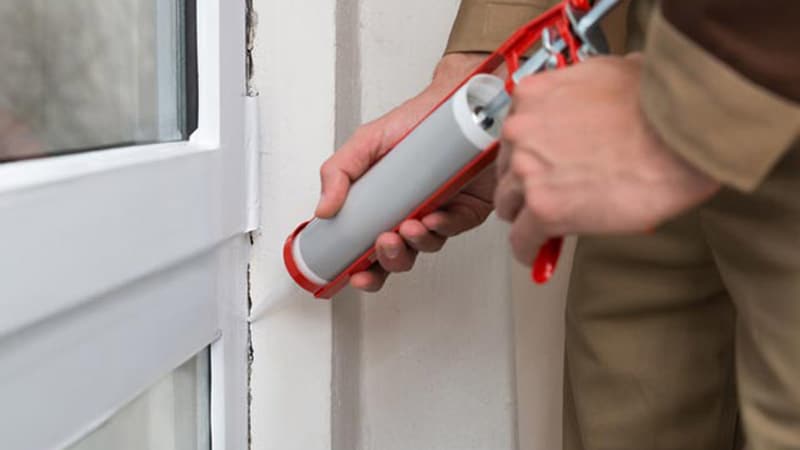
#5 Consider the Age and Size of Your Furnace
If you’ve tried all of the fixes mentioned above, but your furnace keeps heating up your energy bills, then it’s time to consider its age and size.
You see, older furnaces tend to be less efficient than newer models and often require more frequent repairs. So, if your furnace is over 25 years old, you should consider replacing it with a newer, energy-efficient model.
However, if your furnace isn’t that old, then I recommend considering its size. An oversized furnace can result in short cycling and uneven heating, contributing to both increased wear and higher energy bills. On the other hand, an undersized furnace will struggle to reach and maintain the desired temperature, leading to continuous operation and higher energy bills.
I understand that purchasing a new furnace can be a significant investment. So, if you’re unsure whether it’s time to replace your unit, consider calling a professional. They can examine your furnace’s components and provide expert guidance to help you decide.
Your Guide to a More Energy-Efficient Furnace
That about covers it! Hopefully, now you know how to reduce your furnace’s energy costs.
Remember that if your furnace is heating up your energy bills, you’ll need to clean or replace the air filter and seal any air leaks. Don’t forget that it’s also important to check the thermostat, examine your home’s insulation, and consider the age and size of your furnace.
Thank you so much for taking the time to read this article. If you’ve found it helpful, please check out our other related posts below.
Have a great rest of the day!


